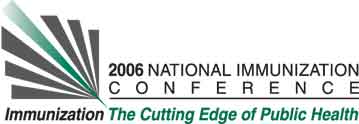Robert T. Bruce, State Health, Colorado Department of Public Health & Environment, 3036922797, 3036922650, Denver, CO, USA
Learning Objectives for this Presentation:
1. Attain training methods predicated on learning styles for medical assistants specific to a community.
2. Create a community-derived training course to educate medical assistants about VFC Program standards.
Background:
Medical assistants (MA's) are the population of the medical community that most often work with VFC (Vaccines for Children) vaccines in doctor's offices, but they are rarely trained for the job. Training MA's on VFC program standards and recommendations would be beneficial to prevent huge monetary losses and the distribution of a non-viable vaccine. High turnover of MAs' in the medical office results in VFC providers not giving them the training that they need. Utilizing the knowledge gained through VFC site visits, a training course was developed particularly for MA's working in medical offices that are part of the VFC program. Those participants that pass the course are issued a certificate of successful completion. VFC providers then have the staff with the skills needed for successful participation in the VFC program.
Setting:
Participants come to the State Health Department where a lecture is given. Participants then take a practicum.
Population:
Medical assistants currently working in VFC provider offices or those graduating from the educational institutions that train them.
Project Description:
Ideas for training methods are solicited from educational institutions that train medical assistants. Lectures on the most important issues surrounding medical assistants and the VFC program are created. Practical application stations are produced from the lecture.
Results/Lessons Learned:
Medical assistants serving the community in doctors offices are trained well enough to successfully implement VFC program best practices. *
*Results still being compiled.
See more of Posters
See more of The 40th National Immunization Conference (NIC)

